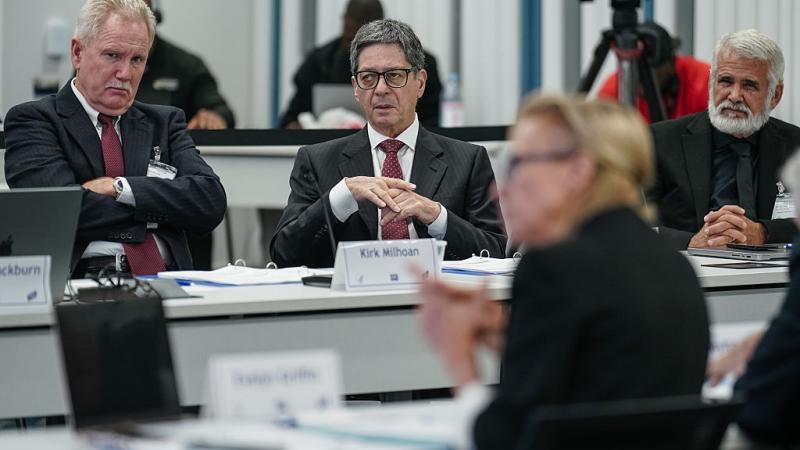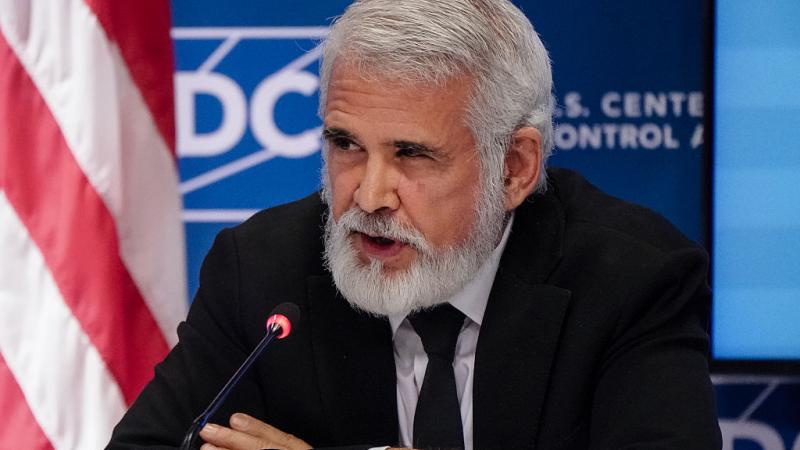Cancel campaigns against faculty skyrocket in 2020, usually get them punished: FIRE study
Largely led by the political left and undergraduates, with white faculty the overwhelming targets. A quarter get fired.
University punishment of faculty for their speech has exploded in the past five years, most often prompted by their expression on social media or in the classroom, a new report claims.
More than 60% of the cancelation campaigns came from the professor's political left, according to the Foundation for Individual Rights in Education (FIRE). Those were overwhelmingly driven by undergraduates, followed by fellow scholars and graduate students.
About a third came from the right, driven almost evenly among administration, general public and politicians. The civil liberties group counted 426 campaigns from 2015 through mid-2021, quadrupling during that period, with 2021 on track to match or exceed the high set in 2020.
The split between public and private institutions was "surprisingly close," with a slight majority of "targeting incidents" happening at the former. This reveals "a systemic problem," FIRE said: "Scholars at colleges and universities of all types are increasingly being targeted for ideological reasons."
It's surprisingly easy to get a professor punished for speech, according to the report: Three in four campaigns convinced administrators to apply "some sort of sanction," from investigation all the way to termination or non-renewal of contract.
Non-tenured faculty were three times more likely to be fired (39%) than were tenured faculty (13%), even though the latter group faced more cancelation campaigns. A quarter of campaigns resulted in termination.
Faculty comments on race accounted for 37 terminations. Only disagreement with institutional policy accounted for more firings (38). Whites were targeted in four-fifths of the campaigns and had the highest termination rate (26%), while blacks had the lowest (14%) of any racial group.
The most common academic discipline targeted was law with 37 incidents, followed by others that "routinely discuss and debate what it means to live in a free and open society": political science, English, history and philosophy. These are overrepresented relative to other disciplines such as business and engineering.
Stanford University had twice as many targeting incidents (18) as the next most frequent colleges: Harvard, Georgetown and UCLA. Two others had more than five incidents: Yale and the University of Pennsylvania.
The saddest individual case highlighted in the report is that of University of North Carolina Wilmington criminologist Mike Adams, an atheist turned vocal Christian conservative who committed suicide a year ago following the latest campaign to get him fired.
He had previously waged a successful seven-year legal battle to force UNCW to promote him based on viewpoint-neutral criteria, and had just reached a retirement settlement package with the university.
The report comes with a searchable database and filters by "faculty characteristics, the source of the outrage, whether the pressure is from the political left or right of the scholar, the outcome, and more," FIRE's announcement said.
It's also the occasion for the official launch of FIRE's Faculty Legal Defense Fund, which it started as a pilot program this spring to provide targeted faculty at public universities at least 20 free billable hours and potentially legal help all the way through trial.
While the civil liberties group said the fund has already served 10 faculty, either through ongoing work or resolutions "to their satisfaction," it declined to tell Just the News about those cases except for one that it made public Tuesday.
"[I]n each instance we have been able to quickly get each faculty member help so they don't have to navigate their institution's disciplinary or grievance process alone," fund fellow Joshua Bleisch wrote in an email.
"Though we've found that faculty going public to stand up for their rights is often tremendously helpful to our advocacy efforts, we don't explicitly require faculty members to go public in order to advocate on their behalf," he said.
The public case involves University of Illinois Chicago (UIC) law professor Jason Kilborn, who drew student complaints for an exam question on employment discrimination that used the redacted slurs "n___" and "b___." UIC suspended him for joking that his dean feared Kilborn would have a "homicidal" response to the complaints.
While it reinstated the professor this winter following FIRE's intervention, the public university continued investigating Kilborn based on unspecified "other concerns" and claimed it has the right to investigate faculty for the "pedagogical relevance" of their materials.
Kilborn explained the purpose of his exam question in a FIRE feature. Just as a surgeon can't rely on lectures to learn surgery, law students must deal with messy real-world situations, he said: "I try to put that scalpel in my students' hands and ask them: What do you do?”
Represented by a FIRE-provided attorney, Kilborn fought off a demand that he sign a nondisclosure agreement or undergo sensitivity training as a condition of resolving the investigation, Bleisch said.
FIRE strives to avoid resolving disputes "by accepting further limitations on speech," he said. While it doesn't mind "generally-applicable mandatory trainings" lacking compelled speech, it draws the line at trainings imposed "as a result of engaging in protected expression," which can be considered an unconstitutional adverse action.
The conditions Kilborn accepted are largely about transparency and feedback. He was already recording classes "as a way to protect himself" against complaints, but allowed UIC to make its own recordings as well.
He promised to notify the dean before responding to student complaints about racial issues and meet with a staffer "periodically to discuss classroom delivery," without being bound by any recommendations. Kilborn called it a compromise "that pleased no one" but gave him what he wanted most: the opportunity to get back to training future lawyers.















